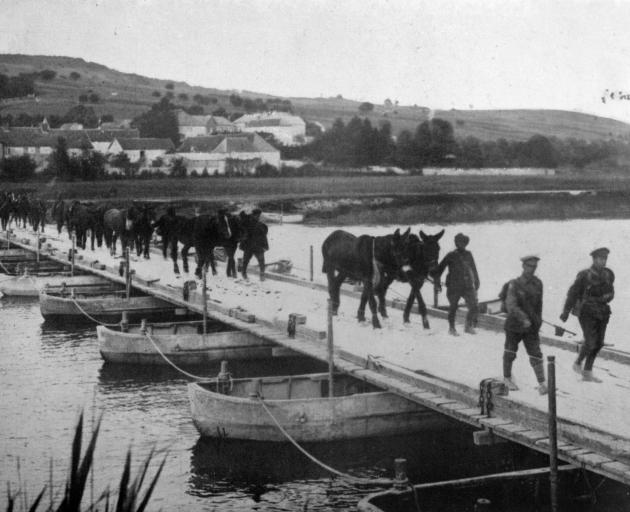
The Allied Governments must win the present war before they can attack seriously the problem of the prevention of future wars. In the meantime the project is more or less nebulous, and there seems to be no clear consensus of opinion among statesmen favourable to it as to the essential factors in the constitution of the league if it is to receive an adequate chance of accomplishing its high purpose.
Mr G. N. Barnes, a member of the British War Cabinet, has this week expressed definitely the view that the inclusion of Germany in a league of nations should not be contemplated, because that would involve a reversion to the old danger.
The argument adduced by Mr Barnes is not elaborated in the cabled summary of his speech. It may be a debatable point whether the inclusion or exclusion of Germany in the proposed league would be attended with the greater risk of ''reversion to the old danger'', for it is possible to argue that the league could hardly be effective with Germany outside it, free to indulge her dreams of domination.
Austrian lawlessness
London Mr Ward Price says: A pock-marked disaffection, like a body covered with sores, is the state of Austria-Hungary. As described in information reaching headquarters, Austria seems reverting to conditions of mediaeval days.
Groups of outlaws, largely deserters and war prisoners from Russia, infest the forests and moorlands and live on plunder, and the military patrols sent to arrest them often join the robbers.
One organisation of armed deserters from Moravia is said to number 40,000. Another in Hungary is a sort of genial Robin Hood band, calling itself ''Royal Imperial Brigands of Biham''.
They are already heroes of popular ballads, and have accumulated reserves of stolen supplies of munitions, which are concealed in forests.
Trophy head
There is on view in Christchurch a magnificent red stag's head shot in South Westland by Mr John Cron. It is evidently from the North Otago herd, which is spreading on the western side of the main range.
The horns are 45½in in length, 45in spread, and with a 5¾in beam. The number of points is 20, and although the tops are irregular, there is a very even set of lower tines, and the head forms a massive and bold-looking trophy.
Money in fish
There would appear to be big money in fish at present, which is probably no new observation to local housekeepers.
An amateur fisherman the other day spent a leisure hour on the Port Chalmers wharf and landed a large frost fish, for which a Dunedin retailer paid 14s, a rather profitable hour's sport for the lucky fisherman, but still more profitable for the buyer, in whose shop the frost fish was retailed a 2s 6d per lb.
The fish in question weighed 14lb, so that a profit of 21s on one fish should in some measure recompense the retailer for the present shortage of supplies .
- ODT, 8.8.1918.
COPIES OF PICTURE AVAILABLE FROM ODT FRONT OFFICE, LOWER STUART ST, OR WWW.OTAGOIMAGES.CO.NZ












